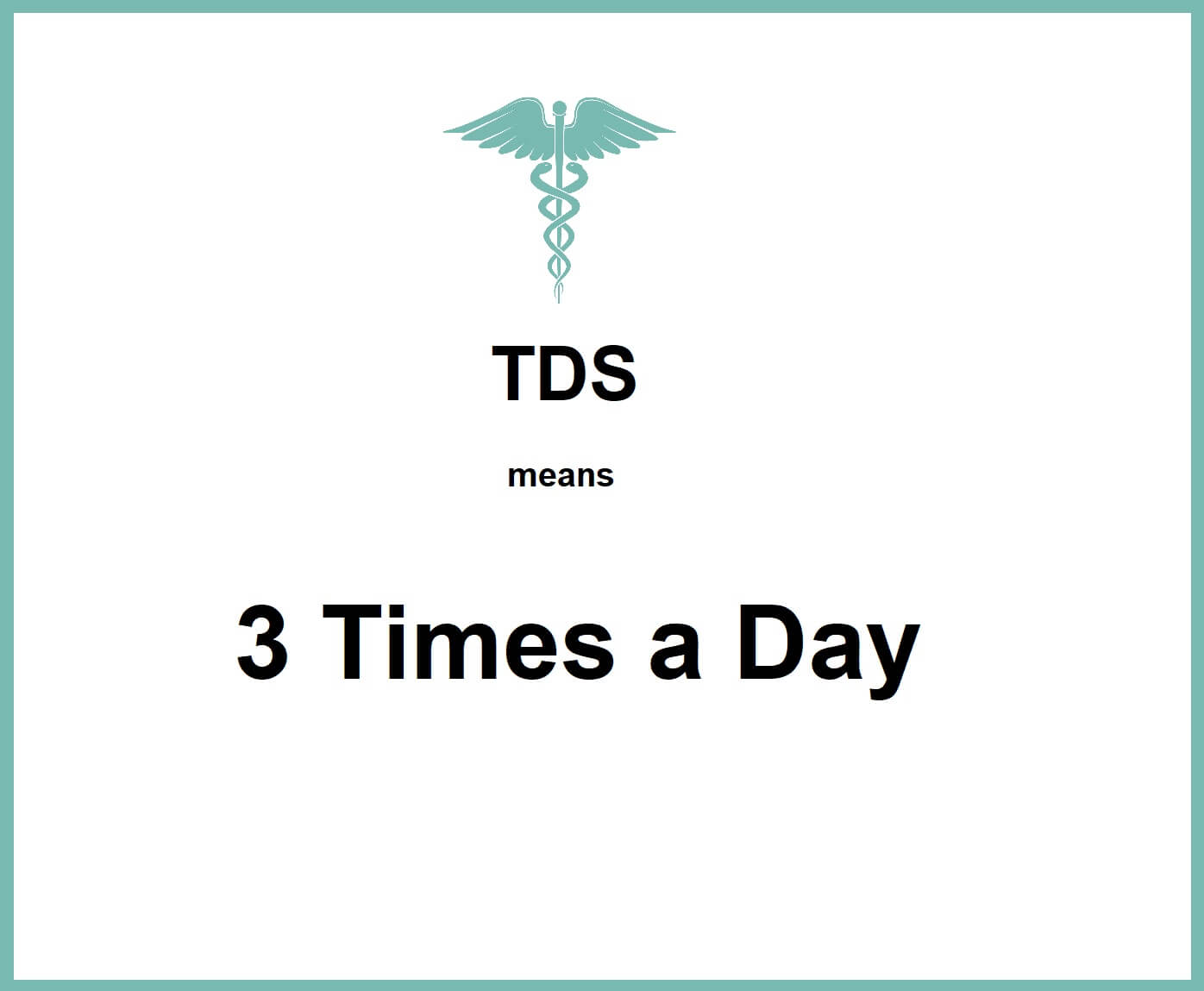TDS Means in Medicine Dose?
When it comes to medicine, healthcare professionals often use abbreviations to simplify documentation and prescription writing. One such abbreviation you may come across is “TDS.” If you’ve ever wondered what TDS means in medicine dose and how it impacts patient treatment, you’ve come to the right place. In this article, we’ll delve into TDS’s meaning, usage, and significance in medical contexts. We’ll explore it all, from its dosing frequency to its relevance in specific medical conditions.
What is TDS?
TDS stands for “ter die sumendus,” Latin for “to be taken three times a day.” It is an abbreviation commonly used by healthcare professionals to indicate the dosing frequency of a medication. When a physician prescribes a drug with the instruction “TDS,” the patient must take the medicine thrice daily at regular intervals.
TDS is a crucial abbreviation as it helps healthcare providers communicate the appropriate dosing regimen. By prescribing TDS, physicians ensure that patients receive the right amount of medication spread throughout the day for effective treatment. This dosing schedule is often employed when maintaining consistent drug levels in the patient’s body is essential for therapeutic success.

Decoding Medical Abbreviations: TDS and More
Medical abbreviations can sometimes be confusing, but they are vital in concise and efficient communication among healthcare professionals. Here are some other standard medical abbreviations related to dosing frequency:
- BD: “bis in die” (Latin) – Twice a day
- QID: “quater in die” (Latin) – Four times a day
- OD: “once a day.”
- QD: “quaque die” (Latin) – Every day
- PRN: “pro re nata” (Latin) – As needed
- BID: “twice a day” (more commonly used in the United States)
TDS vs. QID: Differentiating Dosing Frequencies
While TDS and QID may seem similar at first glance, they differ in their dosing frequencies, potentially impacting patient outcomes. TDS involves taking medication three times a day, approximately every 8 hours. On the other hand, QID requires medication administration four times a day, roughly every 6 hours. The distinction between these two dosing frequencies is crucial, especially regarding potent medications with narrow therapeutic windows.
TDS Dosing in Specific Medical Conditions
The TDS dosing schedule is applicable across various medical conditions. However, healthcare providers may opt for TDS dosing for specific reasons. Here are some examples:
1. Antibiotics
TDS dosing of antibiotics may be preferred in treating certain bacterial infections. This allows for a consistent presence of the medication in the patient’s system, ensuring effective disease eradication.
2. Pain Management
TDS dosing can provide sustained relief throughout the day for certain pain medications. This is particularly beneficial for patients with chronic pain conditions.
3. Chronic Diseases
In managing chronic diseases like diabetes or hypertension, TDS dosing of medications may be prescribed to maintain stable and controlled blood sugar or blood pressure levels.
4. Asthma Medications
Some asthma medications are prescribed on a TDS dosing schedule to effectively manage symptoms and prevent asthma attacks.
5. Hormonal Therapies
TDS dosing is utilized in various hormonal therapies to maintain stable hormone levels and achieve desired treatment outcomes.
Tadalafil 20 Mg: How Long Does It Last?
FAQs about TDS Means in Medicine Dose
Is TDS dosing the same for all medications?
TDS dosing is not universal for all medications. The dosing frequency depends on factors such as the drug’s half-life, therapeutic window, and the patient’s condition.
Can I change the dosing schedule prescribed by my doctor?
No, following your doctor’s instructions regarding medication dosing is essential. Changing the dosing schedule without medical guidance can have adverse effects.
What should I do if I miss a dose while on a TDS regimen?
If you miss a dose, take it as soon as you remember, provided there is a sufficient time gap before the next scheduled dose. If not, skip the missed dose and follow the regular TDS schedule.
Can TDS dosing cause side effects?
Like any medication, TDS dosing can lead to side effects. However, these vary based on the drug administered and the individual’s response.
Can TDS dosing be used for over-the-counter medications?
Yes, TDS dosing can also be used for over-the-counter medications, but it’s best to consult a healthcare professional for proper guidance.
Are there alternatives to TDS dosing?
Depending on the medication and the patient’s condition, healthcare providers may prescribe alternative dosing schedules like BD or QID.
Conclusion
In conclusion, understanding what TDS means in medicine dose is essential for patients and healthcare professionals alike. TDS dosing ensures that medications are taken regularly to achieve the desired therapeutic effects. It is widely used to treat various medical conditions, from infections to chronic diseases. As with any medication, following the prescribed dosing schedule and consulting a healthcare provider for any concerns or questions is crucial.















